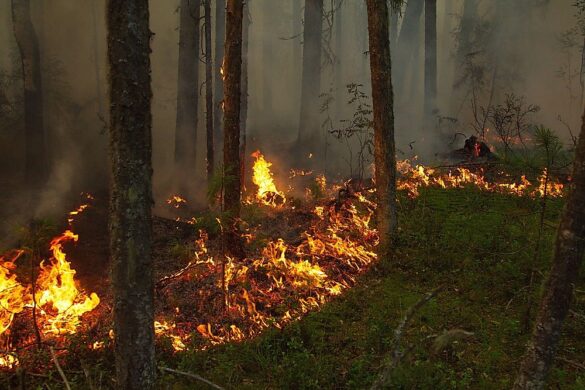The phenomenon of wildfires transcends mere destruction; it serves as an unrelenting testament to nature’s fiery wrath. Throughout recorded history, numerous fires have left indelible marks on the landscape and its inhabitants. Among them, some fires stand out not only for their devastating impact but also for the existential reflections they provoke within the Christian faith.
To comprehend the gravitas of the worst wildfires in history entails more than just cataloging statistics. It requires an examination of the theological implications and ethical responsibilities that arise from such cataclysmic events. Through the lens of Christianity, one can observe a narrative that oscillates between judgment, redemption, and an urgent call to stewardship of creation.
The Great Fire of 1666 in London is one among many examples that illustrate the complex interplay of human existence with the divine. Spanning over four days, the inferno obliterated a significant portion of the city, leaving thousands homeless. In the aftermath, the event was interpreted by many as an act of divine retribution. The fire prompted reflections, urging the faithful to reassess their lives, engage in repentance, and renew their commitment to moral integrity. For Christians, such catastrophic events can serve as a wake-up call, a reminder of humanity’s sinfulness, and an invitation to seek God’s mercy.
Conversely, the Peshtigo Fire of 1871, the most deadly wildfire in American history, represents a different narrative arc. The conflagration decimated the town of Peshtigo, Wisconsin, claiming over 1,500 lives. For Christians contemplating the enormity of suffering witnessed in such tragedies, the question of why God allows such horrors must not be overlooked. This fire forces a theological grappling with the coexistence of suffering and love, urges believers to find solace in Scripture, and inspires communities to offer mutual aid and comfort in times of distress. Here, the notion of collective grief and resilience becomes critical.
Another devastating event, the Black Friday bushfires in Victoria, Australia, in 1939, epitomizes the ravaging potential of wildfires linked to climate anomalies. This fire killed 71 people and razed thousands of homes and livestock. For Christians, these fires compel us to engage in stewardship of the Earth. The creation mandate given in Genesis requires an ethical responsibility not only to safeguard the environment but also to act sustainably. The need for a renewed Christian environmentalism becomes increasingly pertinent to address the existential threats posed by climate change, which fuels such disasters.
In more recent times, the Camp Fire in California, which incinerated the town of Paradise in 2018, reflects ongoing issues concerning human habitation within ecosystems prone to natural catastrophes. With 86 fatalities and destruction of over 18,000 structures, this fire accentuated the fragility of life. The fallout galvanized communities to seek answers and self-reflection. Many turned to faith as a beacon of hope amidst despair. The Christian community often provides resources for emotional healing and physical assistance, showcasing sacrificial love in action and fulfilling the calls of Scripture to aid the afflicted.
Beyond examining particular events, it is crucial to analyze the symbolic nature of fire in Christian theology. Fire represents both purification and destruction. It can consume the unworthy while simultaneously acting as a refining agent. In this duality, wildfires can be interpreted as a crucible for spiritual introspection and moral evaluation. Just as the Israelites faced trials in the wilderness, believers today are also called to explore their faith in the face of adversity, fostering reliance on divine providence.
Moreover, when considering the ethical implications surrounding wildfire management, Christians are called to a high standard of moral responsibility. The parable of the Good Samaritan resonates with the need to extend compassion toward those affected by natural disasters. As stewards of creation, Christians are urged to support initiatives for forest management and climate resilience actively. Fostering a culture of care and preparation can mitigate the devastating impacts of future wildfires.
As one contemplates the theological ramifications of the world’s deadliest wildfires, it becomes evident that these events extend beyond mere statistics. They challenge believers to confront profound questions about the nature of suffering, human responsibility, and divine providence. Yet, while wildfires can incite fear and despair, they also unveil the opportunity for hope and renewal. In a world rife with unpredictability, faith can serve as an anchor, guiding individuals and communities through turbulent times toward healing and restoration.
In conclusion, the narrative of wildfires in recorded history is far richer than a simple recounting of devastation and loss. It beckons Christians to engage in deep reflection and action. Each tragedy harbors lessons that resonate with eternal truths. By fostering a commitment to stewardship, compassion, and community, believers can actively participate in the redemptive work of God in a world fraught with uncertainty. Embracing both the harsh realities of wildfires and the hope found in faith allows Christians to navigate the complexities of life while honoring the divine creation entrusted to their care.



